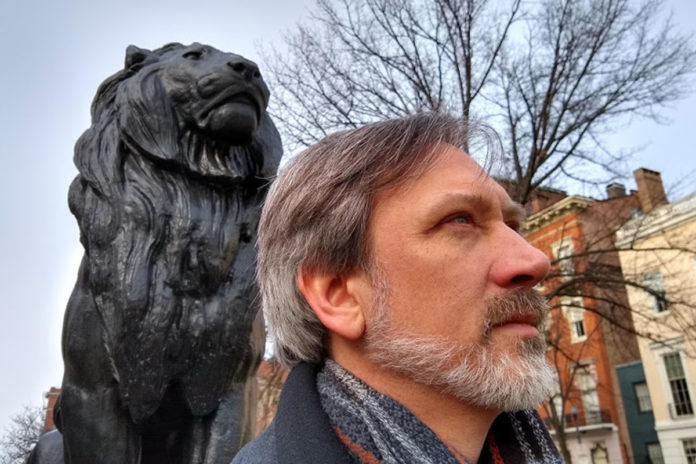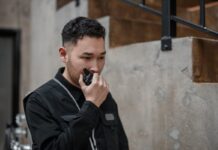The story of a family dog and how each family member copes with the dog’s loss.
Duane
It was difficult for Duane. He was used to coming home from middle school—and prior to that elementary school—to the wagging stump of a tail and the excited jumps and yelps and licks from Ginger. Some days he was preoccupied and barely noticed Ginger waiting for him at the door. Sometimes, when his mind was on a girl or movie or comic book he wanted to devour, he didn’t notice Ginger at all. That came with being a 15-year-old, with the transition from middle school to high school in a new city, state, side of the country. But a day didn’t go by that Duane didn’t spend some time petting Ginger, walking her, spending time with his best friend.
As an adult, when asked to name his first pet, Duane always thought of Ginger. But that wasn’t the truth. Ginger was Duane’s third pet, if you included all the dead fish as one. During one of Dad’s multi-month deployments in the Navy, Mom had decided that Duane needed a pet to keep him company. Thus the unnamed goldfish in a bowl.
“My fish needs a friend,” the eight-year old Duane had said.
“You’re his friend,” Mom said.
But as Duane watched the fish making circles in his bowl, darting back and forth and sometimes putting his head against the glass, Duane insisted that his friendship(which consisted mostly of watching) wasn’t enough. A second goldfish was introduced to the bowl.
“Now there’s two of them,” Mom said, glad to see her son pacified.
“Like you and me,” Duane said. “And when Dad comes home we need to get another fish.”
When Dad came to their South Carolinian home after months at sea, he brought gifts and was open to the ideas and requests of his family, having been away for so long. A little wooden treasure chest from Spain to hold the coins he’d collected from port cities around the world. An album of international bank notes. A wooden spear from South America. And from the local pet shop, a third fish.
Dad had taken Duane fishing on numerous occasions, an opportunity for him to take command of a water vessel with a crew of two. But when he saw that Duane was more interested in fishing at a pet store, he cultivated that interest. The fish became a project instead of a pacifier; by the time Dad had been home for as many months as he’d been deployed, their fish bowl had been replaced with an aquarium tank, a rainbow of poured-in rocks, an air pump, filter, plastic plants, a sunken ship, a diver, and about a dozen fresh-water fish of various shapes and colors.
“These fellows will keep you company during my next deployment,” Dad said.
“Do you have to go again?”
“It’s my duty,” Dad said. That was that.
When Dad shipped out for another three months at sea, the fish did not fully occupy Duane’s attention. He and Mom would clean out the tank once a month, using the net to catch the fish and put them in the old fishbowl, draining the water, rinsing out the rocks, cleaning the plastic plants, sunken ship, and diver. Then they’d fill the tank with fresh water and introduce the fish to a clean new world.
But, one by one, the fish died off. Maybe it was old age. How long do fish live anyway? Perhaps they could sense the sunken mood of Duane, missing his father while he wished he could be missing elementary school. Could have been that he just spent less time focused on the fish as he spent more time in the cub scouts, at his church, playing with his friends, and having dirt-bike adventures at the nearby dirt hills.
Whatever the reason, by the time Dad returned from his next deployment with a case of Portuguese wine, an impressive collection of international coins and banknotes, a statue of a Vatican guard, and a South American bow and arrow set, all the fish had been flushed down the toilet.
“Buried at sea,” Dad said.
“I think he needs a more interactive pet,” Mom suggested to Dad over spaghetti and meatballs one evening. “A pet he can actually, well, pet.”
Dad asked Duane directly: “Would you like a dog or a cat?”
The ten-year-old Duane lit up. Neither had before occurred to him as a possible reality. “Either one!”
That Saturday, while Duane was watching Bigfoot and Wildboy on the early morning television, Mom and Dad went shopping. Not giving it much conscious thought, Duane had expected them to return with some new boxes of cereal, peanut butter and jelly, and cookies. By the time Duane was watching Thundarr the Barbarian, they came home with a cat named Tabby.
A cat was a lot more fun than fish. Tabby and Duane became fast friends. Duane would chase Tabby, and Tabby would chase Duane. Duane would use cat toys and yarn to tease Tabby, and Tabby would attack the toys and yarn. Duane would lead Tabby around the house, up and down the stairs, onto the door screens and furniture, by trailing a line of yarn around the house.
Mom and Dad seemed to like Tabby less and less as the weeks went on. A scratched armchair. A chewed-on couch. A cake pan used as a litter box and a litter box ignored. By the time Tabby was scaling the curtains like Spider-Man, Mom and Dad had taken on a suspiciously Green Goblin-like position.
A few Saturdays after Tabby came into the home, Duane sat down at the coffee table with a bowl Trix to watch Super Friends. As Saturday morning cartoons passed one into the next, he didn’t notice that Tabby was missing. Later, as Thundarr was in mid-battle, Mom and Dad set Duane on a barbarian rampage of his own. They’d traded Tabby in for a dog.
“You’re going to love Ginger even more than Tabby,” Mom and Dad both promised. Duane wasn’t interested.
Mom and Dad encouraged Ginger forward, and she approached Duane and licked his hand. Ginger wagged her tail, making puppy eyes at Duane.
“Look, she really likes you,” Dad said. “You’re going to be great friends.”
“Plus she doesn’t climb the curtains,” Mom added.
“I don’t want Ginger,” Duane insisted, tears in his eyes. “I want Tabby!”
“Tabby has a new family now,” Mom said. “She’ll be happier there.”
Dad picked up Ginger. The mutt was a small dog, but on the larger size of small, with coarse black hair and red-brown markings above her eyes, on her neck, and spotted across her body. Her tail had been cut as a puppy and now it looked like a curled hook, hard and knarled. “Ginger needs you now.” Dad handed the mutt to Duane. He took her reluctantly. He wouldn’t deny the dog the friendship it needed. But he wished he could trade it back for Tabby.
The dog slept at the foot of Duane’s bed, even when he kicked it out of his space so it wouldn’t touch him as he slept. Mom and Dad asked Duane to help them feed and water Ginger, and give her treats, which he reluctantly did as a prison guard might slide a tray of cafeteria food through a door of bars. They told Duane to take Ginger for walks through the neighborhood, and for runs around the yard, and even in his stubborn frame of mind, Duane found it hard not to laugh as he watched the dog sweep swiftly through the yard, throwing grass up in her wake.
Although Duane didn’t warm up to Ginger at first, by the time Dad was deployed again, Duane and Ginger had become best friends. He couldn’t believe there was a time that he actually liked that stupid tabby cat better, that he’d actually wanted to take Ginger back. Ginger expressed a fuller range of emotion, was more expressive of his love, quick with a face lick and a playful yelp. Sure, Tabby had allowed you to pet her if she was in the right mood—and had been quick to scratch you if she wasn’t. But Ginger was all licks and smiles and wags.
When Dad was at sea and Mom went to the hospital to have a baby, Duane stayed home with Ginger and a friend from the neighborhood. Duane and Ginger welcomed their new baby brother, Jason, home. Duane got to hold Jason; Ginger got to lick him. Duane got to feed Jason his bottle; Ginger got to lick the formula off his chin. Duane got to change Jason’s diaper. Ginger got to sniff it the way she liked to sniff the butts of other dogs. Mom, Duane, and Ginger raised Jason in those first few months together, so Jason would be in good shape when he got to meet his father for the first time, when the Navy brought the ship back home to Charleston and Dad joined his family, Mom holding Jason in her arms, Duane holding Ginger in his.
When Dad got new orders and they moved from Charleston, South Carolina to Monterey, California, Ginger, Jason, and Duane rode in the back of the car together. Monterey was where Jason started pre-school, Duane started middle school, and Ginger started running in fields of succulent ice plants instead of giant pine-cone minefields of dry needles and grass.
Ginger, Jason, and Duane rode in the back seat of the car again as they crossed the country from Monterey, California to Newport, Rhode Island. There, Jason started elementary school, Duane started high school, and Ginger ran through snow for the first time, trotting and rolling and making yellow spots in the crisp white drifts.
Duane had lots of human friends. Having already become used to the art of observing and selecting new people to observe, to engage, to probe, to consider for companionship, Duane had made a new network of Rhode Island friends—both the in-school and after-school variety—within a few weeks. He remained close with the best of his friends still in Monterey, writing letters in those pre-world wide web days, making phone calls, even sending audio cassette letters and photographs and home videos to and fro. Duane and his friends—from Monterey as well as Charleston—had created their own little social network that spanned the nation.
But it was easy to see why Duane considered Ginger his very best friend. Ginger was the friend who followed him from one place to another when they moved across America and back again. Ginger was the friend who always greeted him with excited jumps and yelps and wags, even if Mom or Dad or Jason were upset with him for getting a bad grade or spilling juice on the rug or not sharing a mint-condition comic book. Ginger spoke to Duane in a language only the two of them understood. Duane knew Ginger would continue to follow him to wherever their next duty station would take them.
When Dad came home one evening with his new orders, Mom was unhappy, Jason was unsure, but Duane was super excited.
“Sasebo, Japan!” Duane repeated in a cheer after Dad’s announcement.
Mom shook her head. “How are we going to survive in Japan?
“It’s not just a job, it’s an adventure,” Dad quipped.
“Where they have samurai swords and sumo wrestlers?” Jason asked.
Duane cheered excitedly to Ginger. “We’re going to the mystic orient! It’s going to be awesome!”
“I don’t think Ginger will be able to make the trip,” Mom said. “With all the shots and weeks in quarantine.”
“Sure she will,” Duane said. When he held Ginger in his arms, Ginger danced like a snake in a skillet, full of excited energy, her tail and tongue both wagging. “She’s part of the family!”
When Duane came home from high school that afternoon, his mind was elsewhere. Preoccupied with a girl or a movie or a comic book, it had become commonplace for him to ignore Ginger’s excited welcome at the door as he dropped off his green canvass book bag and went straight for other interests. So he didn’t notice that it didn’t happen on that day. It wasn’t until after dinner that it dawned on him. Something was missing.
Jason
It was easier for Jason. For as long as Jason could remember, he considered Ginger as much a part of the family as his brother or parents. But for most of those years, Ginger was an idea more than a friend. A dog to pet when he was just developing the motor skills to pet. A funny family member who ate birthday cake and ice cream at the table like a person. A tricky one who would ty to snag your catch when you were out fishing with Dad, or conspire to eat your tough meat under the dinner table. A protector who would bark when intruders came knocking at the door and then wag when the door revealed them to be friends. An entertainer who chased squirrels and birds, but never managed to catch one. A plaything to show off when playmates came over.
Jason was at such an age that it was hard to peg the family dog. It wasn’t a family member the way that Duane or Mom or Dad was—it wasn’t even a person. But it wasn’t just a toy, like his Castle Grayskull or the Native American Indian rag doll that Grandma made for him during one of their visits to Wyoming. Something between a family member and a toy, Ginger made up her own category.
That didn’t mean Jason didn’t love Ginger—he loved her even more than he loved the most prized possessions of his life: his pacifier, Fu-Fu, which he’d been forced to bid farewell years ago; his Blankie, which he still had but wasn’t allowed to parade around in public as he once had; his Skeletor action figure, twice the size of any of his brother’s little Star Wars figures. Jason enjoyed cuddling with Ginger, dropping to the floor and squeezing her in a hug, her back encased in the curl of his chest. Jason enjoyed getting out his He-Man figures and playing with Ginger, pretending she was a beast to rival Battle Cat. Once in a while, Ginger would play in the way she enjoyed, and knaw on a toy. Jason didn’t even mind when Ginger chewed up Beast Man; he looked even better with his battle scars.
Jason loved Ginger in a way that was greater than his toys and things, and it was no small thing for Jason to give up his Fu-Fu or to deny Blankie when guests visited. He’d have gladly given up Skeletor and Castle Grayskull, Blankieand the Indian doll, if that meant they could keep Ginger and bring her with them to Japan. Jason would gladly stay in Newport, Rhode Island, if that meant they could keep Ginger. On some days, especially when they were arguing, he’d probably consider giving up his brother if that meant he could keep Ginger. But to Jason, saying goodbye to Ginger wasn’t like saying goodbye to Mom or Dad or Duane.
He was surprised to see his older brother cry the day that they discovered Ginger was no longer with them. Usually Duane was angry at him, or annoyed, or too busy to share which emotion he wore for the day. Seeing how upset Duane was when Ginger was gone was almost more upsetting than the fact that Ginger was gone, to Jason.
Japan would be weird. A whole other country, with samurai, karate classes, lots of rice, and giant sumo wrestlers in underwear uniforms practicing in the park across from their tatami-matted house. But with Duane so upset, and Mom and Dad seeming more confused than confident, and Ginger gone, Jason wished they could just stay home—the one they had now or the one they had in Monterey or Charleston—and keep their Ginger.
Jason took his chewed-up Beast Man action figure with him on the plane to Japan. Duane rolled his eyes when Jason said that it smelled like Ginger.
Elmer (Dad)
It was easiest for Elmer. Not to say that it was easy, not that he didn’t cringe at the idea of turning his back on a dog who’d been loyal to him and his family for the past seven years. But this was just one of the realities of life. More difficult times had come and more trying times would come. Life wasn’t all daisies and roses. Giving away a dog to a retired farm couple in the country was a relatively easy life lesson for his boys—and more importantly, a necessity.
When he was a kid, a dog was a dog, not a member of the family. His mom didn’t let the dog on the furniture or in the bed, didn’t feed it scraps at the table, and certainly didn’t feed it ice cream for dessert every night. They didn’t walk it twice a day and pick up after it. They never mistreated their dogs, and they did care for them—but a dog was a dog and a person was a person.
So, they’d evolved into a kinder, gentler people. Society was more humane, treated everyone—from new military recruits to prisoners to dogs—with a little more empathy and care. That was a good thing. He encouraged allowing Ginger to be a part of the family, a best friend to two boys who were dragged from one side of the country to another every couple of years. His tolerance for a dog in their bed and daily walks and ice cream treats warmed to enjoyment of them.
Ginger was a part of the family, and he loved the dog. But it was still a dog. And orders were orders. They were going to Japan. And dragging the old dog through quarantine would likely kill her. If she didn’t die in the cold, isolated cage during the transition, she probably wouldn’t last long, at her age, in Japan.
He’d seen other people in the Navy whose pets had gone psycho after such an international move. Dogs that weren’t the same after coming out of quarantine. Dogs who had once been gentle, hardened by the experience.
If Ginger survived, who was to say she wouldn’t bite the hand that fed her? Attack one of the boys or his wife while he was deployed? That wasn’t any good for the dog or anyone in the family.
It wasn’t easy for Duane or Jason or even Carol. But it’s not like they had to live out a scene from Old Yeller. Duane didn’t have to shoot his crazed dog square between the eyes. No, this learning moment was far more tolerable. They were releasing Ginger into a better life than they had to offer her in Japan, and likely better than what they would have to offer when they returned to the states, not knowing where they’d be. This option—giving Ginger to the retired parents of one of his fellow officers—was best for Ginger and the rest of them. And it was a teaching moment for his kids: sometimes the best way to show you love someone is to do what is best for them, not what is best for you.
Carol (Mom)
It was hardest for Carol. As a wife, mother, and nurturer, it was in her nature to want the best for the three boys in her life. She knew from the animals she’d had in her own childhood—the cat, the duck, Skippy the dog, Penny the dog—that a person could get attached to an animal, just as attached as one could get to a human. Interesting, she thought when watching movies or television shows, that when you saw a soldier get hit by an arrow or bullet, it was difficult, but when you saw an innocent dog or horse get hit by a bullet or arrow, it was even harder to watch. Aside from infants, animals were the most susceptible to nurturing. She knew the pleasures of pets as well as the pains.
That’s why her first idea for an ideal pet was a fish. And, knowing felines to be more independent than canines, cats came second. When she’d allowed Elmer to talk her into the dog, she understood that dogs were more lovable and that each member of the family would fall under the spell of the dog in a way they wouldn’t with a cat or fish. That’s why she’d been resistant at first. And that’s why it was hardest on her. Once Ginger had been brought into the family, once dog and human had opened themselves to one another’s love, there was no turning back.
Ginger had been a loyal dog, protective, accepting of new additions to the family like Jason, and permissive of the alpha’s long departures in salty sea air. But Carol knew that forcing Ginger to endure the quarantine required for her admission to Japan could possibly kill her and certainly scar her physically and psychologically. The dog was no puppy these days—Ginger was an older woman in dog years. It wasn’t fair for the dog to have to go through that. The merciful choice was perhaps the most painful one, but it was the one that was best for Ginger. A retreat to the country. An older couple who would look after her, provide her with an easy retirement on a large farm. Ginger would be sad and would miss the family she’d known for most of her life. But the new family would be good to her, and life on the farm would be much more peaceful than an airline flight, weeks or months in quarantine, and life in a tiny house on stilts with a stone yard atop seventy-one spiraling steps.
Much as Carol loved Ginger, there was something more difficult about their decision, even though she knew it to be best. It ached her to see how it hurt her family. Sure it was a dog, as Elmer liked to remind, but it was a member of their family and they all loved her. Jason never knew life without Ginger. But Duane, who had called Ginger his best friend since he was ten, couldn’t be persuaded.
“I can’t believe you got rid of her without even telling me!”
“We knew it would be easier this way,” Elmer had said.
“How could you do that to her? To me? We didn’t even get to say goodbye!”
“You got better,” Carol said. “I made sure the last time you and Ginger interacted, it was friendly and happy. I’ve been watching. Your last moments with Ginger were quality ones. That’s better than a difficult goodbye.”
“Did you at least get the address of the family? So we can get her when we come back from Japan?” Duane shed angry tears.
“No,” Elmer said. “Ginger will be their dog now. It wouldn’t be fair to them, or to her, for us to take her back. She’ll grow used to them and she’ll be happy.”
“Happier than with us?” Jason asked. He was falling into a serene cry.
“Happy in a different way,” Elmer said. “Like a new chapter in life. You know how when we moved from Charleston to Monterey, and from Monterey to Portsmouth, each time is like a different chapter. You miss the old place. But you like the new place and you’re glad you got to move. At first, you’re focused on missing the old place, missing your old friends and favorite spots. But it doesn’t take long before you’re happy that you have the memories of the old place and the experiences and friends in the new place. That’s how Japan will be for us. And that’s how Ginger’s new home will be for her.”
Carol reemphasized the point. “Ginger will never forget us, and we’ll never forget her. But we’ll be happy enjoying our experiences in Japan, and she’ll be happy with her new family on a big farm in the country.”
“I don’t want to go to Japan!” Jason was crying. “I want to stay here with Ginger.” Elmer picked up Jason and comforted him. He knew Carol’s nurturing would be better focused on Duane.
Duane seemed more angry than sad—but more hurt than anything. “I’ll never forgive you for this!” He stormed off to his room.
Carol knew her son. She knew he spent that evening plotting. First, he envisioned running away, figuring out where Ginger was, and going to get her. Staying behind while they went to Japan, living with one set of Grandparents or the other, or an aunt or uncle, or friend. Missing out on the adventure of a lifetime in Japan to save his best friend from a possible happiness that wouldn’t include them being together. But during his sleepless night, he would realize that this wasn’t reality. That he could pretend that one day he would see her again. He could imagine a Lassie-Come-Home ending in which they’d return from Japan and he’d hunt her down and she’d come trotting in slow motion through the springtime field of grass and wildflowers to jump into his arms and lick his face and wag her tail. That the old farmer couple would stand on the porch with their arms around one another and smile. And that they’d share custody of the beloved Ginger. Duane might even write a story about it. But she knew that he knew this was fiction. In all likelihood, Ginger would be dead by the time they got back stateside, and if they’d decided to take her overseas with them, she’d likely have died in Japan—if not in quarantine, alone.
And she knew that Duane would eventually forgive, if not forget. It would start with the excitement of the move. The month-long drive across the country from Newport, Rhode Island to Seattle, Washington, with one less body crowding the back seat. The visits to family and friends along the way. The airline flight—his first ever—from Seattle to Tokyo. The busy streets of Tokyo, the towering sight of Mount Fuji, the bullet train and coach tours. The arrival to their new home in Sasebo, Japan. And, in time, he would understand that leaving Ginger behind was the right decision for her and for them.
But that didn’t make it an easier decision to execute. It was hardest for Carol because she felt the grief of the decision herself, and through each of her family members.
Including Ginger.
Years passed. The kids grew. New pets came and went: Sato, Koshka, Cinnamon, Silver, Vesta, Meadow, Sassy. On a recent camping trip to celebrate Elmer’s birthday—the big 7-0—she and Elmer and her grown sons welcomed a nearby dog to the campfire. Old Ruff barely had enough energy to wag his tail, scruffy and tired. He epitomized the dog in retirement. Something about Old Ruff reminded her of every dog who’d wagged into and waddled out of her life. As she retired for the evening to the rustic cabin with Elmer, Old Ruff remained by the dwindling camp fire with Duane and Jason. Falling asleep, she imagined them howling at the moon.
In those rare occasions when Carol wakes up in the middle of a dream involving Ginger, it’s usually the same serene scene: Ginger trots happily through a springtime meadow of green grass and wildflowers. Penny, looking happier than ever, struts alongside her. Sato is there too, and Skippy, and Meadow, and Vesta and Sassy. The cats, Tabby and Koshka and Silver and Cinnamon and Betty Sue, are on the porch, where Grandpa Smiley and his wife stand smiling. Roscoe and Big Red, Grandpa’s hunting dogs, are sitting next to their doghouses, although their chains are gone. They watch the scene with tongues hanging out and tails wagging. Duane and Jason—children again—collide with the playful dogs, and they all fall down and wrestle in the meadow together, the laughter and barking warmer than sunshine.
About the Author
Eric D. Goodman is author of Setting the Family Free (Apprentice House Press, 2019), Womb: a novel in utero (Merge Publishing, 2017), Tracks: A Novel in Stories (Atticus, 2011), and Flightless Goose (Writer’s Lair, 2008) as well as the forthcoming Setting the Family Free. A past literary contributor to Baltimore’s NPR station, WYPR, Eric is curator of Baltimore’s popular Lit & Art Reading Series and a regular reader at book festivals, book stores, and events. Eric lives and writes in Baltimore, Maryland. Learn more about Eric and his writing at www.EricDGoodman.com.















